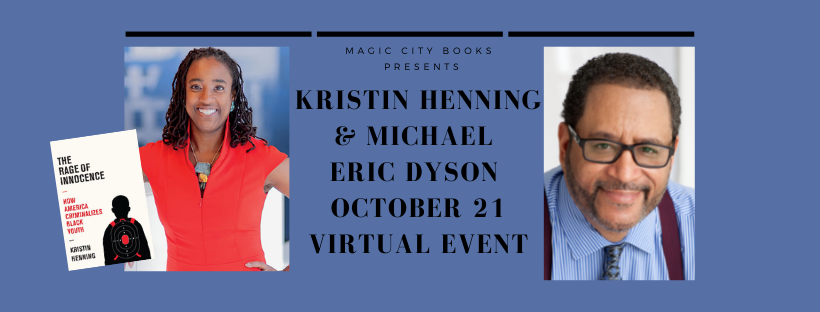

She has written many law review articles advocating for juvenile law reform. Henning is Blume Professor of Law and Director of the Juvenile Law Clinic at Georgetown University Law School. Professor Kristin Henning has compiled an overwhelming number of stories drawn from cases and media reports, bolstered by empirical data and scientific research, that attest to their veracity and give voice to Black youths whom she has defended for twenty-five years.

Critics sometimes dismiss storytelling as anecdotal evidence and question whether they are typical or accurate. They often rely on “voices from the bottom” – stories about and by women and people of color portraying their oppression. In the legal academy, storytellers use narratives as central to scholarship and policy advocacy. Lawyers have long recognized that part of their job is to tell their clients’ stories. (Sept.The Rage of Innocence: How America Criminalizes Black Youth Henning’s suggested reforms include fostering resilience by teaching Black history, de-escalation training for police officers in schools, and “the elimination of unconstitutional and racially targeted stops, searches, and arrests.” Copiously documented and passionately argued, this is a powerful and persuasive call for change. Henning also contrasts the case of an 18-year-old Black high school football player sentenced to 10 years in prison for having consensual sex with a 15-year-old classmate with that of Stanford University freshman Brock Turner, who received a six-month sentence for felony sexual assault. She notes, for example, that some communities have banned sagging pants, a symbol of hip-hop culture that Black adolescents meeting in groups are routinely branded as gang members, while white teenagers are not and that Black youth are more likely to be prosecuted for drug crimes, despite evidence that white youth use illicit drugs at the same rates or higher. Georgetown law professor Henning draws on high-profile cases, sociological research, and her experiences representing defendants in D.C.’s juvenile courts to document the institutional mechanisms that criminalize the normal adolescent behavior of Black youth. are subjected to unwarranted scrutiny by police and an overly punitive and biased justice system, according to this sobering and richly documented study.


 0 kommentar(er)
0 kommentar(er)
